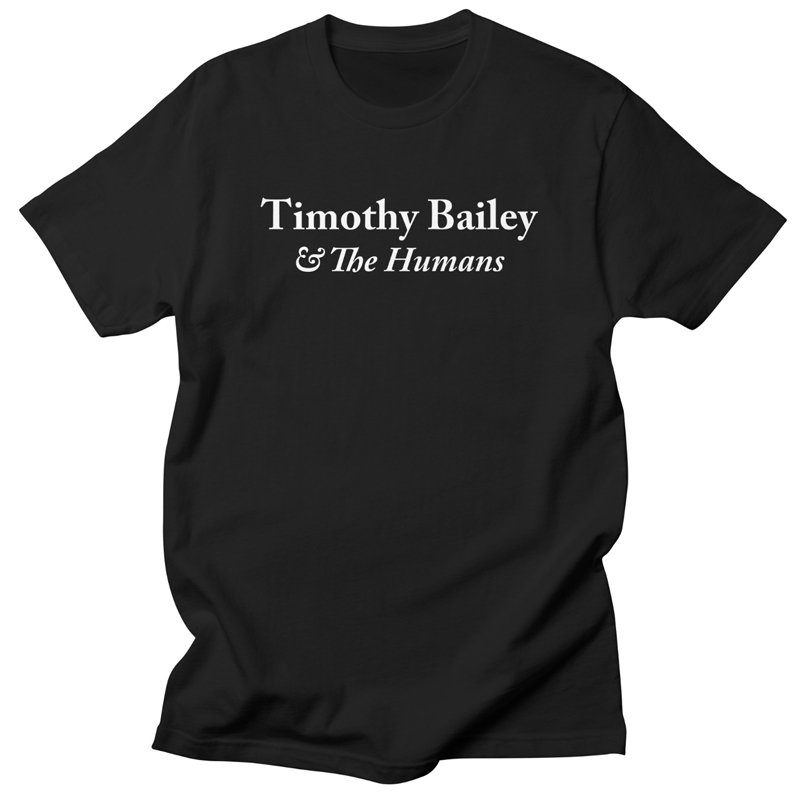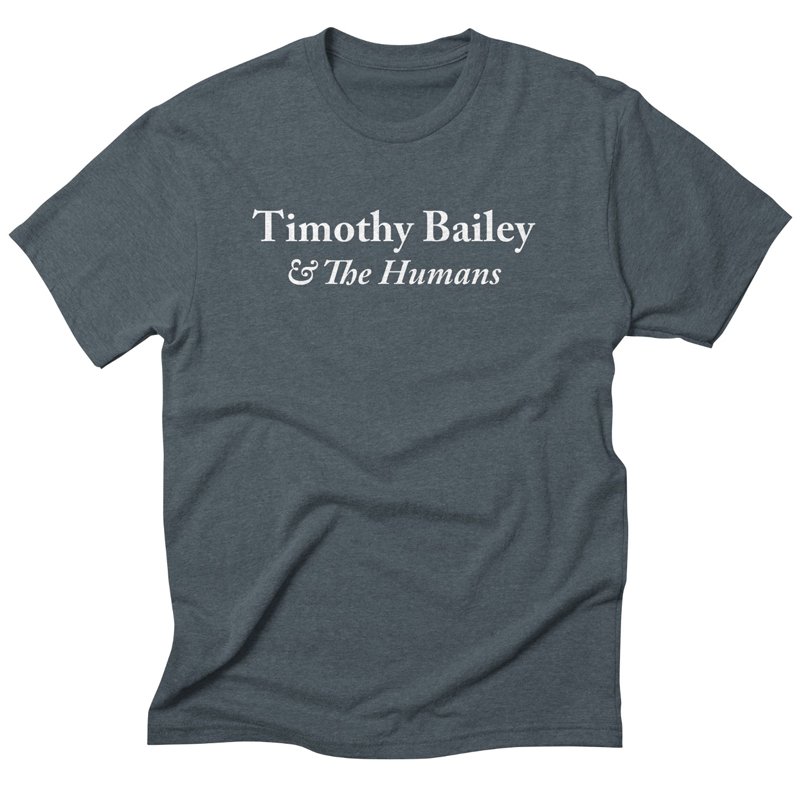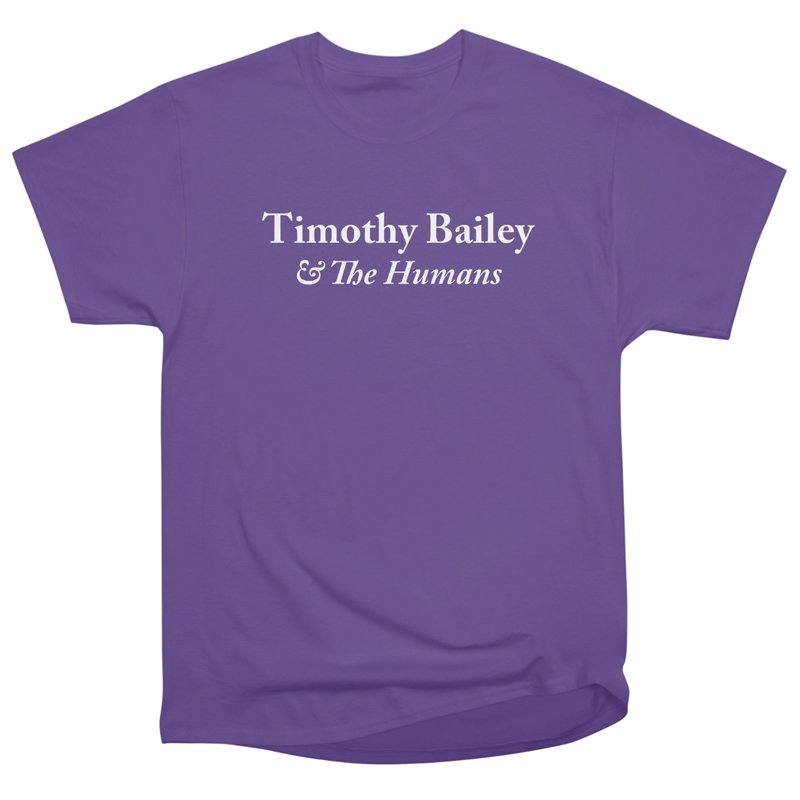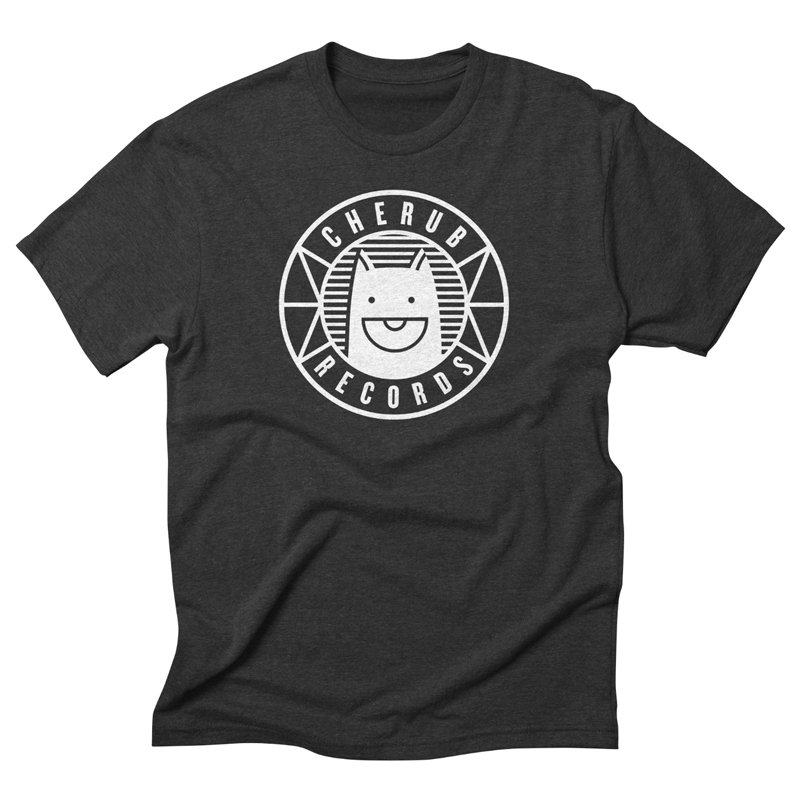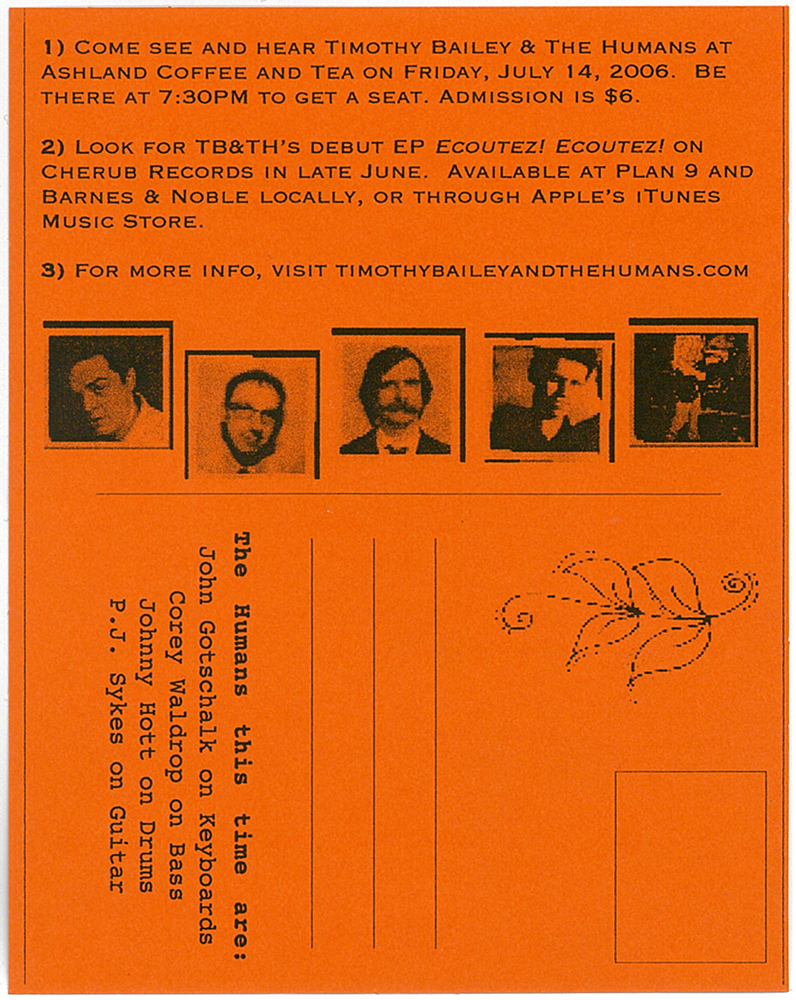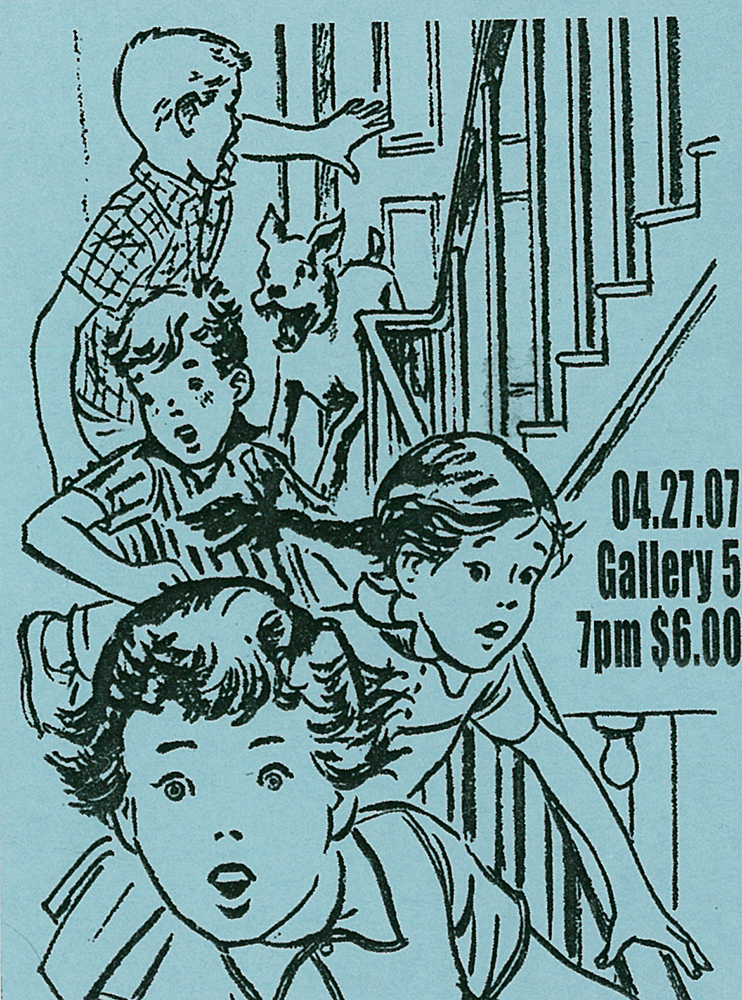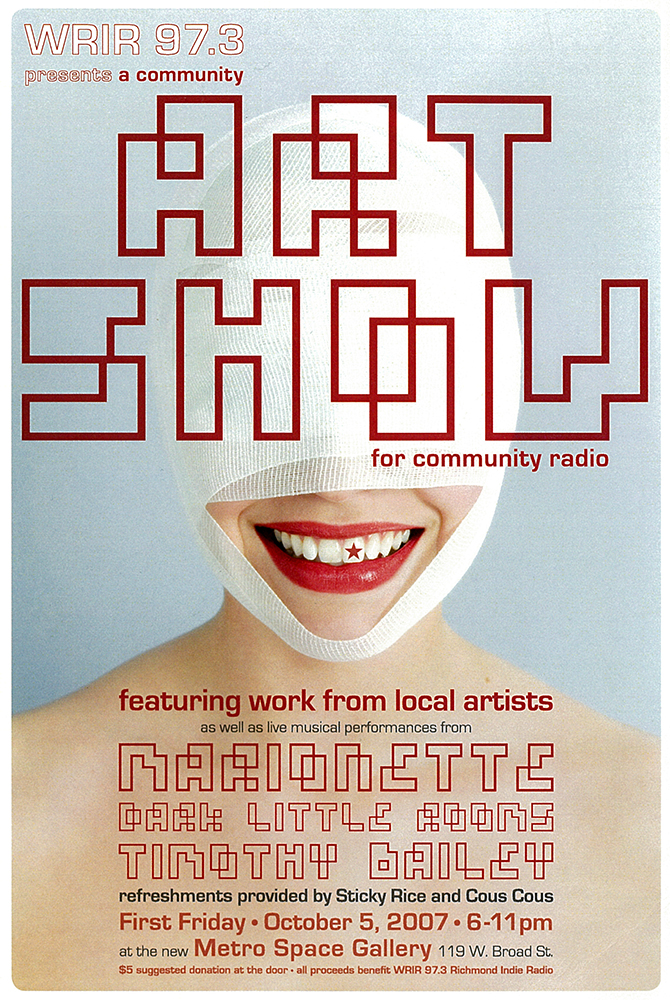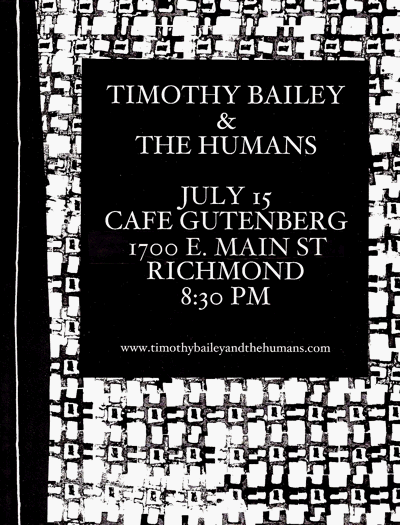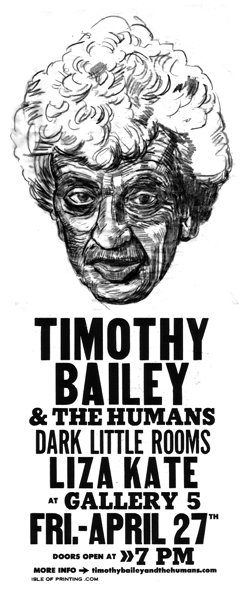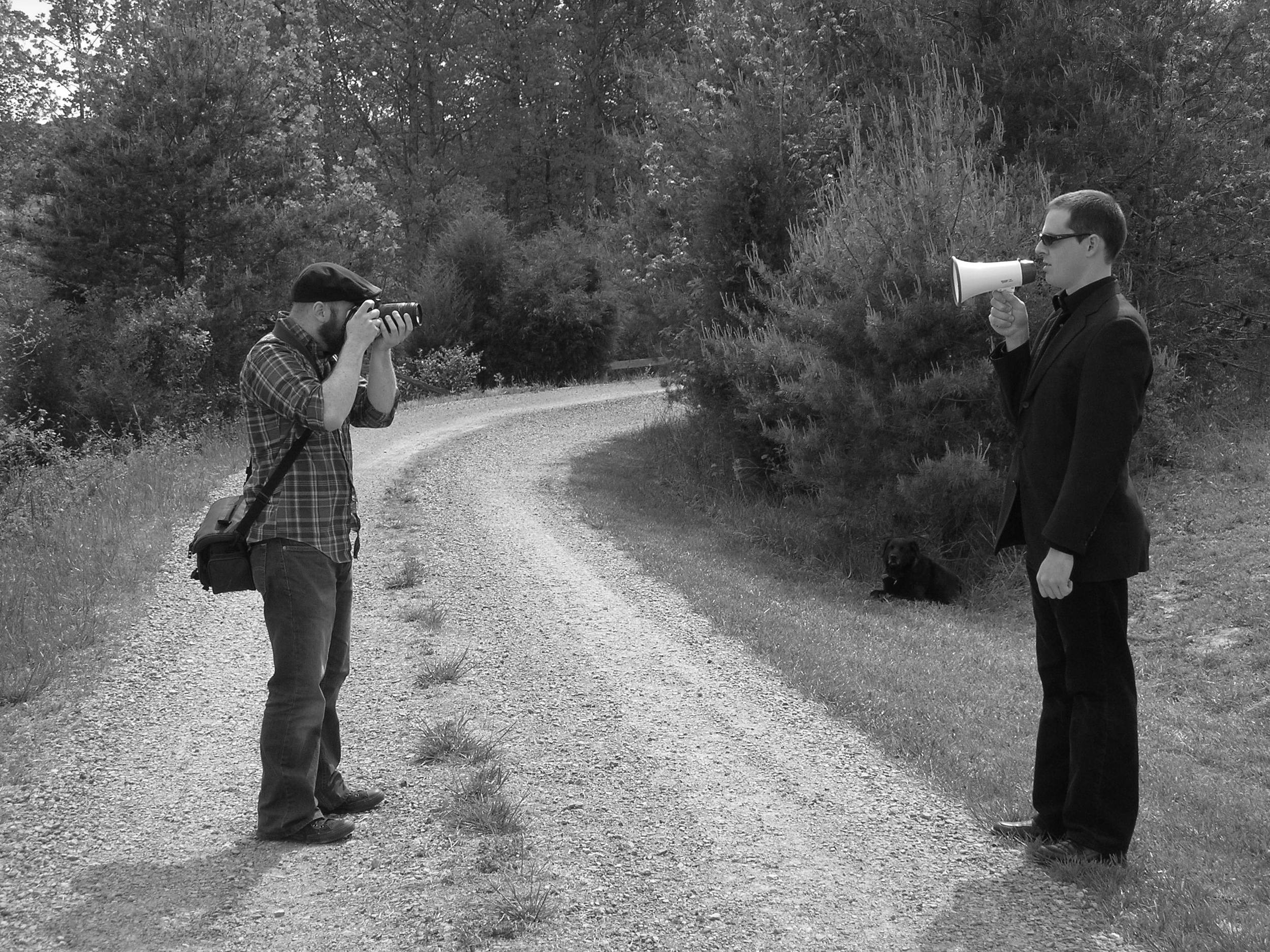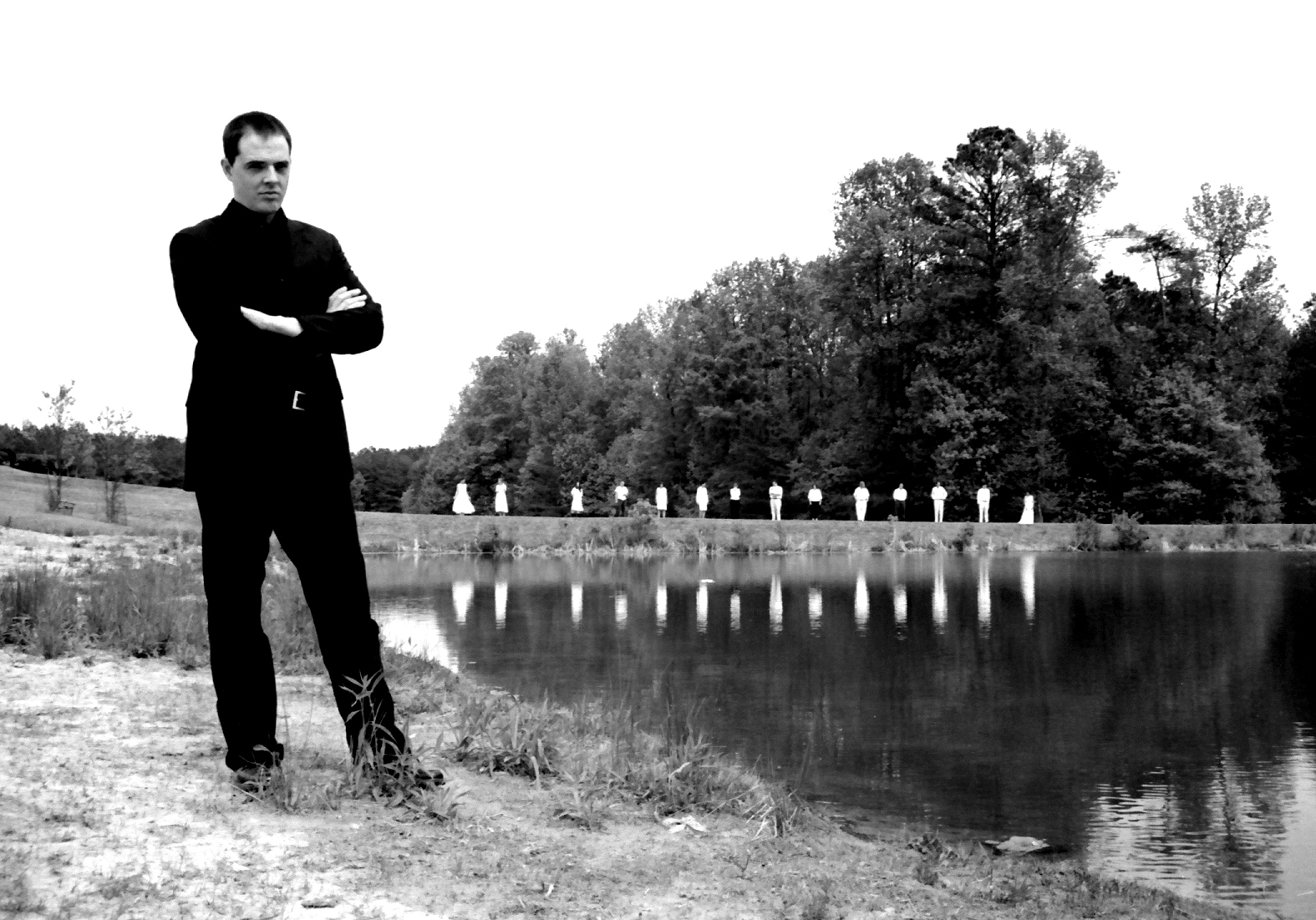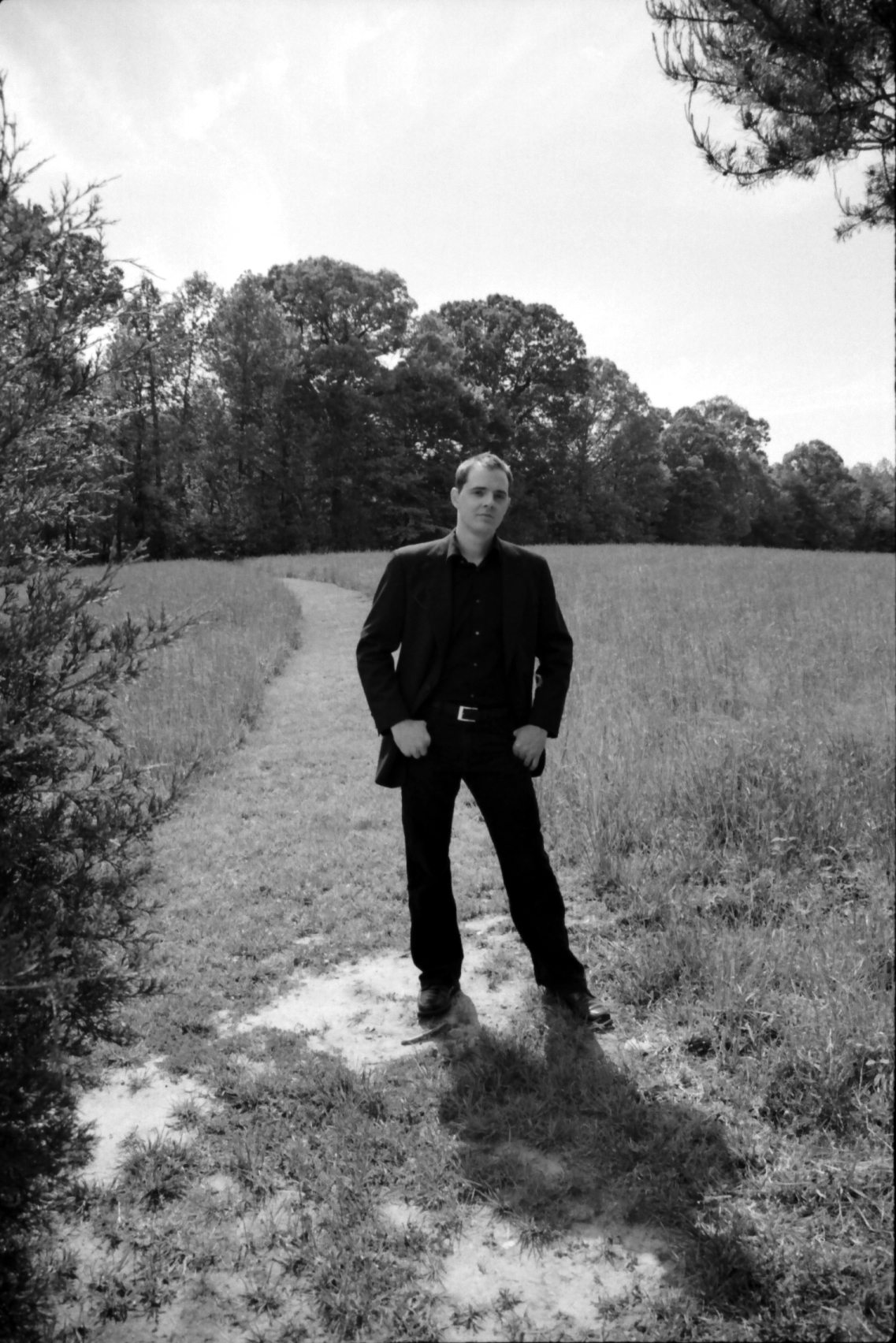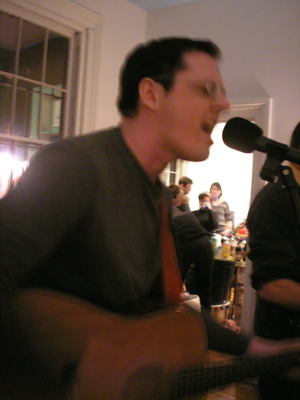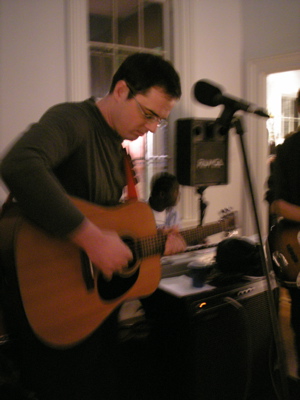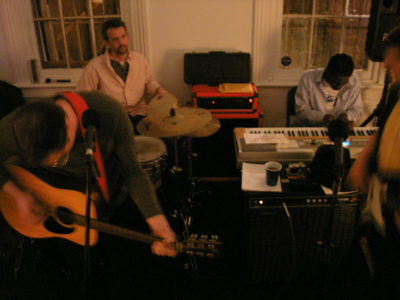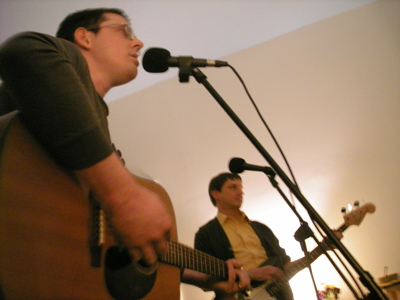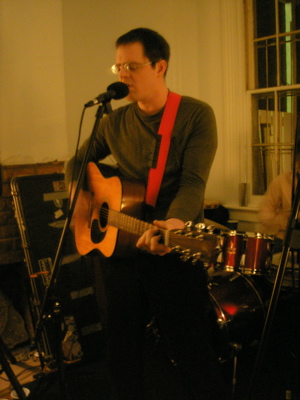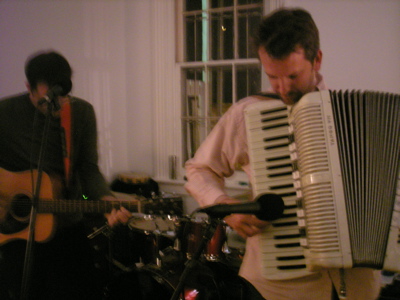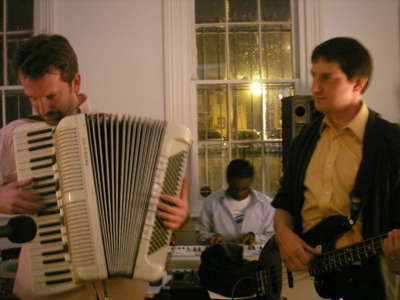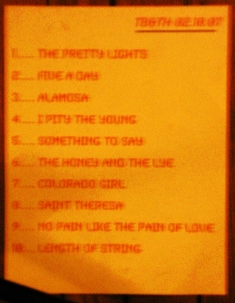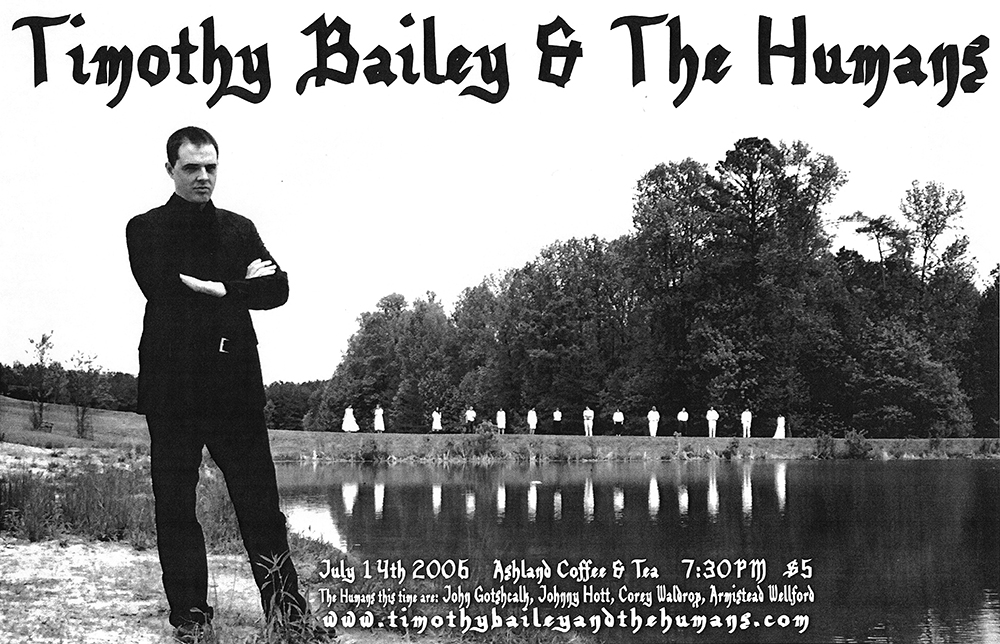In 1992, Tim McCready moved to Richmond, Virginia where he co-led the bands Schwa and Fashion Central. Those bands released 7" singles on Brilliant Records and SpinArt in the U.S. and Elefant Records in Europe.
After several years of extensive touring, McCready burned out, selling all his equipment and dropping out of the music scene entirely. Over the next 10 years, Tim held a variety of jobs, did a stint in grad school, fell gravely ill, and recovered.
Richmond's Cherub Records released Timothy Bailey & The Human's debut EP "Ecoutez! Ecoutez!" in June 2006. The recordings show a hard-won maturity and optimism that could only arise from a painful and honest reckoning with life's low points.
McCready's main songwriting concern is how people try to maintain a realistic sense of hope in the face of life's worst difficulties.
Timothy Bailey & The Humans continue to record and perform!
Cherub Records era Timothy Bailey & The Humans
The Humans included:
Doyle Hull, Melissa Sunderland Jones, Johnny Hott, John Gotschalk, PJ Sykes, Corey Waldrop, Devonne Harris, Greg Garner, and Hunter Duke amongst others.
Timothy Bailey & The Humans live performance videos
Photo and flyer archive
Timothy Bailey & The Humans
I first met Tim “Timothy Bailey” McCready in the early 1990’s through John Gotschalk, a mutual friend and musician. Tim and a fellow named Mike Hearst were fronting a band called Schwa and had a very catchy tune called “Saccharine Glue.” Both wrote songs and sang, but I found Tim’s tunes more appealing. He played jagged jazz-inflected guitar and possessed a thick but supple voice – like a tuned foghorn – that was entirely out of step with the wistful, dreamy character of most vocalists of the time. Our bands shared stages a few times, appeared on an “Indie Pop” compilation called “Something Pretty Beautiful,” and then lost touch. I became a father and stepped away from music for a couple of years. When I returned, the local scene seemed more roots-focused and, if Tim was active in music, he was traveling in circles outside of the less-than-hip one that now included me.
Fast forward ten years to 2007. I was playing with a couple of different bands and in a side project called the Miserable Space Cowboys. Somehow – it was almost certainly through John Gotschalk again (there needs to be a study of that!) – the core of the Cowboys was drafted to back Tim for some live shows. We were given some CD’s of Tim’s latest work and I was blown away. Tim’s songs in the 90’s had been clever and tuneful, but these new songs were ages beyond anything I had heard from him before and, truthfully, ages beyond anything anyone local was even contemplating. The arrangements were complex, with surging strings and layered keyboards atop R&B rhythms that stopped and started on a dime. The lyrics were intense and hauntingly personal and full of religious and scientific imagery. In another band, I might have suggested a change or two, but the songs sounded so good the way Tim wanted them and his vision of how they should sound was so strong that I didn’t dare. I quickly realized my job was to translate what was on the recordings and demos into a band setting and give them the energy they needed to make them jump off the stage.
I believe that all of us Cowboys-become-Humans ended up coming to the same conclusion because, by the time the full band version of “Timothy Bailey and the Humans” first hit the stage, we had developed a very powerful and dynamic live sound. At the time, I described it to someone as “Elvis Costello fronting the E Street Band” and, while that description gets some things wrong, I think it captures the inventiveness, sweep, and drive of that particular group.
In retrospect, we may have pumped the songs up a little too much because, after a couple of shows, Tim dissolved the full-band Humans and retooled the songs for a smaller, more acoustic combo. No drums or electric guitars or keyboards this time, just acoustic guitar, percussion, violin, and my electric bass. I was the only holdover from the previous lineup and, while feeling a little guilty, counted it as a great compliment.
I liked all of Tim’s songs that the two iterations of the Humans played, but this version played a tune, “Spring Crystal Animals,” that remains probably my all-time favorite and a live version recorded at a placed called Café Gutenberg is probably the one time a live version outstripped Tim’s studio recording. It features my favorite lyric by Tim and by just about any songwriter:
When her son said, “I’m called to priesthood;
I think it’s what God wants from me,”
She set her fork down. She said, “Oh, come on now.
Can’t we just leave Him out of this?”
After two gigs with the new stripped-down format, the Humans were dissolved and Tim and I lost touch once more. It’s been nearly a decade since we played together, so maybe it’s time again. You can be sure that, if Tim called tomorrow, I’d jump at the chance to become a Human again.
- Doyle Hull
(Timothy Bailey & The Humans, The Red Hot Lava Men)
July 2016


